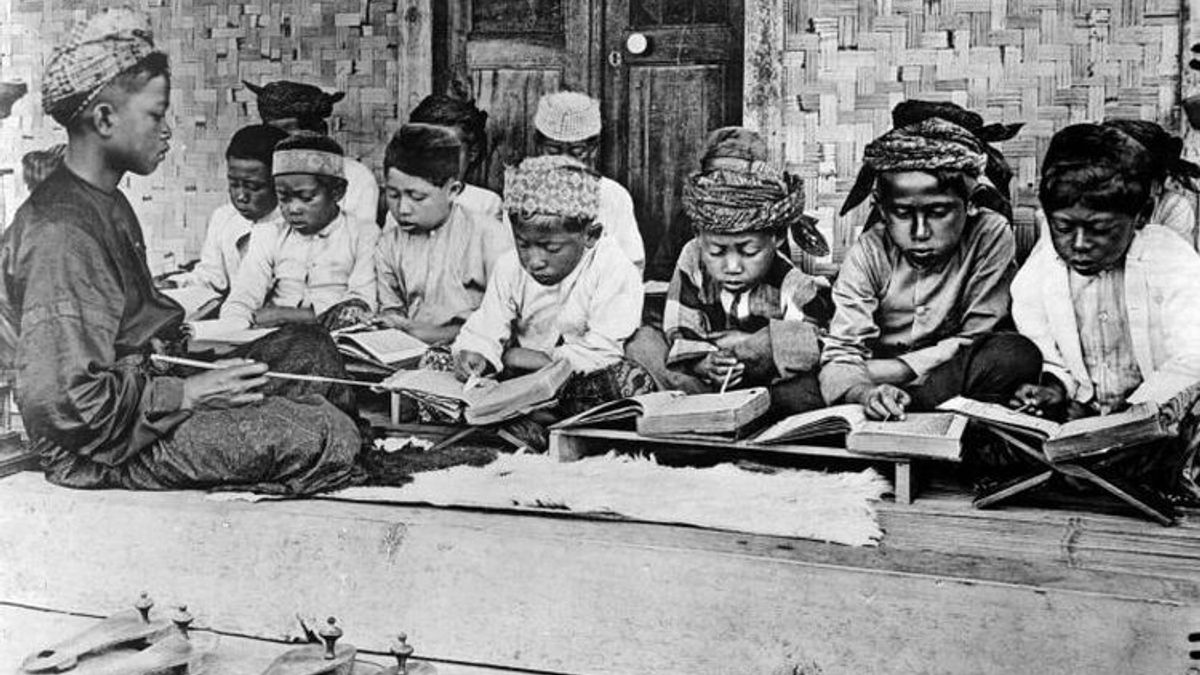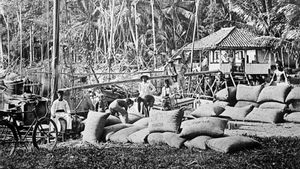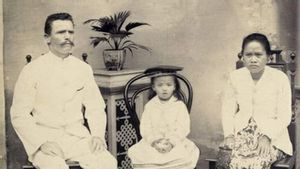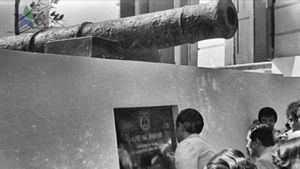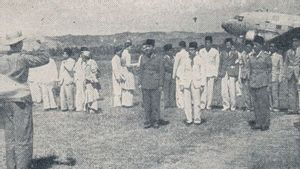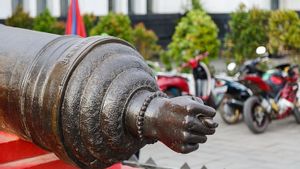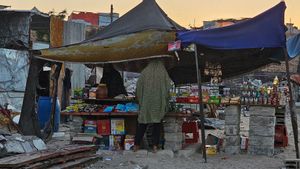JAKARTA - The resistance of Muslims was often a hassle for the Dutch. In the Java War (1925-1930), for example. Prince Diponegoro's struggle was assisted by Kiai who incidentally became an Islamic religious leader. They mobilized students in Islamic boarding schools (pesantren) to take up arms against the invaders.
The incident became proof that the colonial era pesantren had a big role in instilling anti-imperialism and intellectual attitude. Therefore, pesantren are considered the estuary of moral education and united intellectual teaching.
Access to education in the era of Dutch colonialism was limited. Schools were only built to satisfy the sciences of the Europeans or the natives' influence. This means that education does not touch most of the Bumiputras. What's more, it doesn't mean that the natives then stand idly by.
Religious leaders – clerics and Kiai – are concerned. They created their own traditional educational institutions. Islamic boarding schools (pesantren), the name. Pesantren is a forum for Muslims in the archipelago to be able to learn religious knowledge.

(Wikimedia Commons)
Regarding Islam, it was widely discussed. It was Islamic teachings that then made students who learned to reject colonialism. The lessons related to anti-imperialism were combined with religious lessons. The teaching was just in use. Pesantren became a field for fostering students to support the Dutch East Indies colonial government.
Take the Java War for example. Prince Diponegoro's struggle against the Dutch was assisted by many Kiai and students. The resistance proved effective. The evidence is that the Dutch lost a lot. Moreover, the duration of the Javanese War itself is quite long, which is five years.
The resistance made the Dutch understand that pesantren had a big role in the resistance. Therefore, the Dutch dubbed pesantren as the place of birth for rebels against the colonial government in the archipelago.
It is undeniable that pesantren are one place for vangs to be considered by the Dutch government as the place for the birth of rebellions. Although initially the Dutch only looked down on each other. But ultimately Islamic boarding schools are a dangerous place for colonials. Although not directly carrying out attacks, the pesantren is implanted with an anti-cooperative ideology, which is undeniable to give birth to a great phenomenon in history.
One example of the Dutch violence against pesantren happened to Kiai Makmur, the leader of the pesantren who was later appointed as the Regent of Pemalang who was killed by the Dutch because he did not want to cooperate with the Dutch. During his time as a student, Kiai Makmur moved from place to place at the Godong Islamic Boarding School (Grobogan), moved to the Jamsaren Islamic Boarding School (Solo), and finally at Tebu Ireng (Jombang) led by KH Hasyim Asy'ari," said Fajriudin Muttaqin in the book Sejarah Pergerakan Nasional (2015).
Moral Education and Intellectual Teaching
Soewardi Soerjaningrat or familiarly known as Ki Hajar Dewantara also praised the dormitory, cottage, and pesantren systems in 1922. The concept of education is not only able to foster the spirit of resistance and religion. However, he called pesantren good as an example of national education. Moreover, if pesantren also provide intellectual teaching.
The pesantren system is an independent example of education. Pesantren cannot be driven by Dutch rulers. The educational institution did not even want to receive any Dutch assistance. They are better off living a simple life, than having to serve the rulers of injustice.
After all, the pesantren system has many advantages. The most obvious advantage is that there are not so many expenditures. Because, the teacher's house has two functions. For a place to live and a place to teach, aka a school.
The rest, because teachers and students live together in one environment, education will be more in-depth. Studying human behavior, for example. Therefore, moral and intellectual education can be well studied.

The advantage will be doubled if a pesantren has a charismatic Kiai. Generally, students want to adopt their role models these role models in spreading good. Most importantly, pesantren is open to all Muslims regardless of social status. Everything is accepted.
From ancient times until now, our nation has educational places. Now, these places are called pawiyatan or dormitories. The place is the home of a teacher (ki ajar) as well as the residence of students (santri and cantrik), and is used as a place to teach. Because teachers and students live together day and night, of course, moral education and intellectual work are integrated.
Currently, the pesantren is solely used for religious education; but in the era when the cottage is called a dormitory, which is given in teachers' homes who are dormitories, not only religious teaching, but also various knowledge. All pieces of knowledge obtained by teachers with studies, either religion, earth science, astronomy, legal knowledge, language, arts, and war science are passed on to students," said Ki Hajar Dewantara as written by Kenji Tsuchiya in the book Demokrasi dan Kepemimpinan: Kebangkitan Gerakan Taman Siswa (2019).
SEE ALSO:
The English, Chinese, Japanese, Arabic, and French versions are automatically generated by the AI. So there may still be inaccuracies in translating, please always see Indonesian as our main language. (system supported by DigitalSiber.id)
